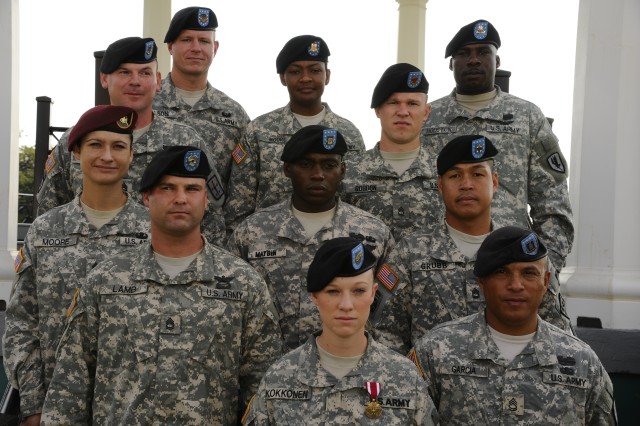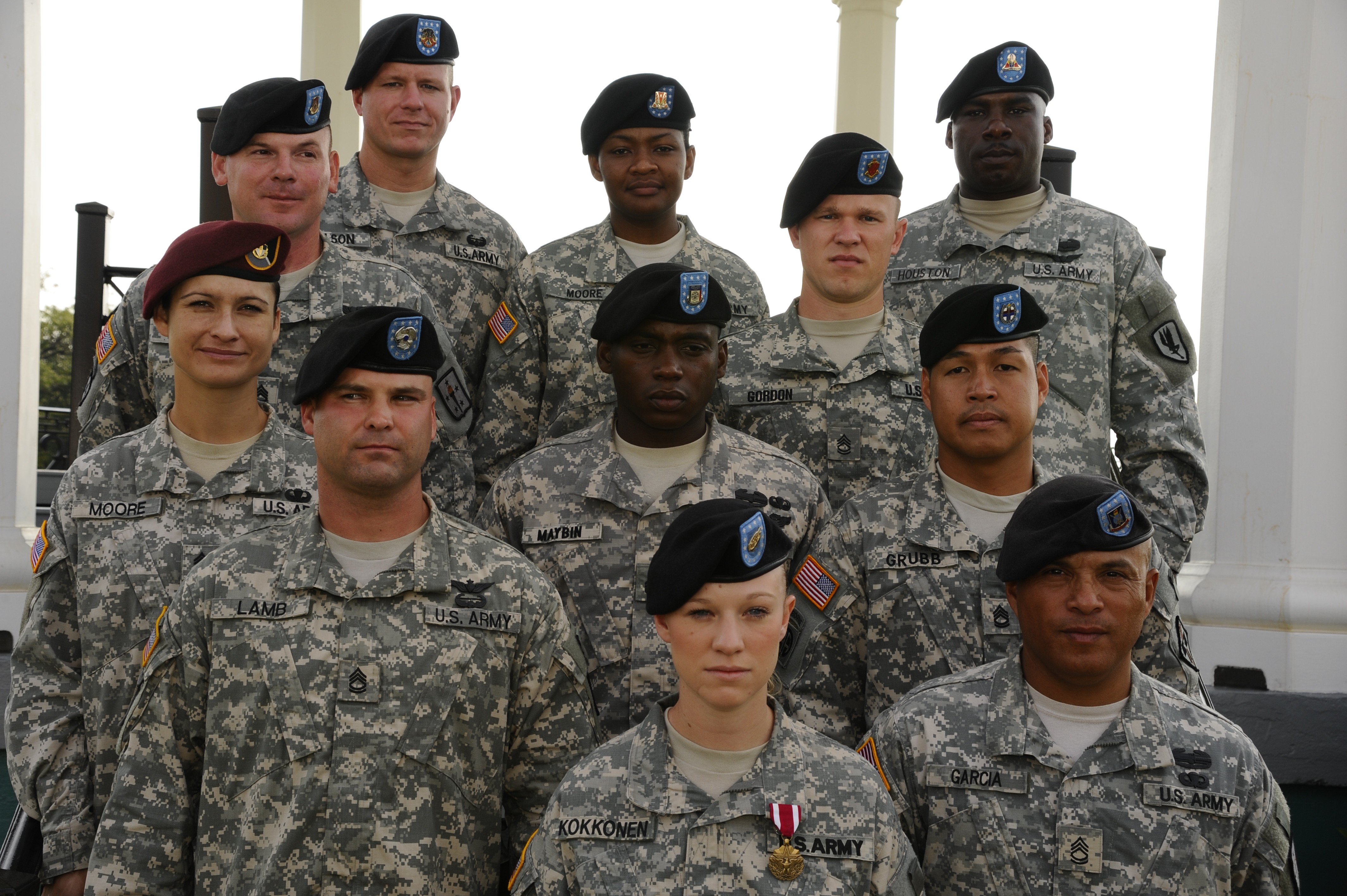
FORT MONROE, Va. (Aug. 26, 2010) - The top 11 of more than 700 advanced individual training platoon sergeants arrived here this week to compete in the 2010 AIT Platoon Sergeant of the Year Competition, where Staff Sgt. Amanda Kokkonen, an AIT platoon sergeant with Alpha Company, 344th Military Intelligence Battalion, Goodfellow Air Force Base, San Angelo, Texas, was named the winner.
"We all came in with a smile on our face and we were all happy to go through the competition together," she said. "Unlike other competitions, it was a lot of camaraderie [through] the end."
In the course of the three-day event, the competitors brought decades of Army experience and ideas as they were drilled on twelve warrior tasks, battle drills, surprise tasks, physical and mental activities and their presentation at a board interview before a panel of senior noncommissioned officers.
"The competition had a lot of variety," Kokkonen said. "Everything we've done is something we've seen [before]."
Competition scenarios ranged from technical skills like combat lifesaving and performing a functions check on an M-16 to leadership skills which included counseling a suicidal Soldier and how to work with a Soldier who refuses to train.
"It grabs certain areas of what an AIT platoon sergeant does on a daily basis," said Staff Sgt. Vernon Maybin with U Company, Quartermaster Brigade, Fort Lee, Va.
"You definitely have to be on your toes and quick and adaptable," said Sgt. 1st Class Alexia Moore, an AIT platoon sergeant at Fort Bragg, N.C. "A Soldier will come up to you with an issue, but at least on the job, you have a second to compose your response or [confer with] your battle buddy."
Back at their training bases, the competitors approached their competition preparation as nothing that strayed from what they do every day and even picked up lessons from their own trainees.
"I've just been doing my job and trying to be the best at it because it's what the competition is all about," said Sgt. 1st Class Charles Nelson, Charlie Battery, 3-6 Air Defense Artillery, Fort Sill, Okla. "My preparation has been working everyday and doing the best I can."
"Every day is a learning experience because [trainees] teach us patience and different and better teaching techniques when it comes to helping Soldiers learn their jobs," said Sgt. 1st Class Michael Houston, Alpha Company, Unmanned Aerial Systems Training Battalion, 1st Aviation Brigade, Fort Huachuca, Ariz. "To accomplish the task is to train the Soldier."
The competition also allowed the candidates share ideas and training best practices not only among each other, but also with TRADOC leadership.
"Everybody brings something to the table; different thoughts, different management, different ways they conduct themselves with their Soldiers," said Sgt. 1st Class Jose Garcia, Charlie Company, 369th Adjutant Generals Battalion in Fort Jackson, S.C.
"They are professionals to the utmost," said Sgt. 1st Class Jason Lamb, Bravo Company, 1st Battalion, 222nd Aviation Regiment, Fort Eustis, Va., about the competition organizers, Sgt. 1st Class Michael Johnston (2009 Drill Sergeant of the Year, active duty), Staff Sgt. Joshua Marshall (2009 Drill Sergeant of the Year, Reserve component), Staff Sgt. Timothy Sarvis (2010 Drill Sergeant of the Year, active duty) and Staff Sgt. Luis Duran (2009 AIT Platoon Sergeant of the Year).
"In an event like this, they've been wondering what we thought ... and immediately began picking our brains while running the competition. They were open to constructive criticism ... that would make everything better for everyone," said Lamb.
In an event-packed three days, leaders and competitors alike remained aware of the gravity and even the difficulties that AIT platoon sergeants face in training and developing new Soldiers. AIT platoon sergeants provide counseling, maintain Army standards, serve as career subject matter experts, and teach Soldiers how they will contribute to their first unit.
"We have a big role when it comes to Soldier transition formation," said Kokkonen. "Before they reach permanent party, they're all great leaders and it's something you're born and bred to do."
"We're definitely a key contributor to [the Army profession] because the quality of the NCO or the AIT platoon sergeant is going to directly affect the quality of the Soldier we send down to the unit," said Sgt. 1st Class Alexia Moore. "We need dedicated, professional NCOs performing those duties to ensure that your end product is successful."
For a nation at war, professionalism and character imparted from the AIT platoon sergeants means setting the stage for trainees to follow suit.
"For the most part, we were at war when they joined the Army and they remained on the team. And that shows a lot about character and values," said Command Sgt. Maj. David M. Bruner, TRADOC senior enlisted adviser and board interview member. "They put their thumbprint on every one of those Soldiers who will go through AIT and join the ranks in that formation."

Social Sharing